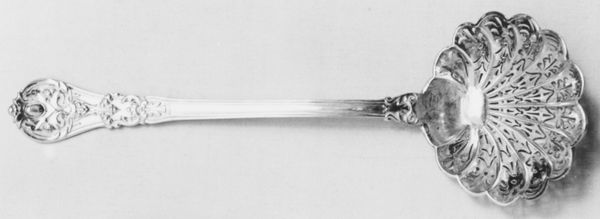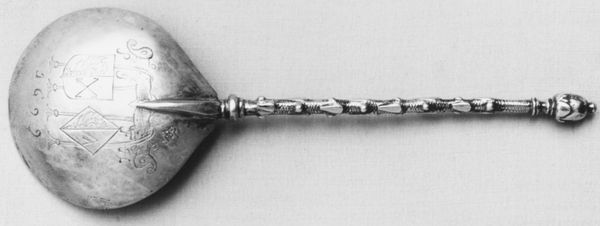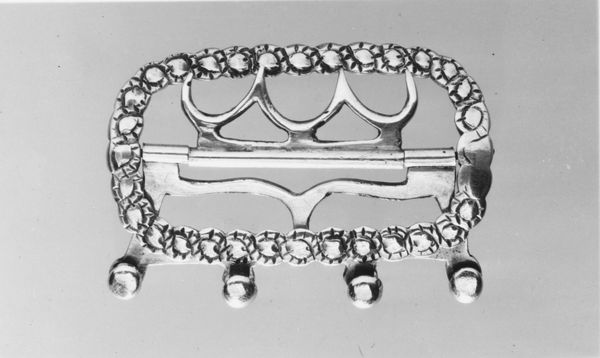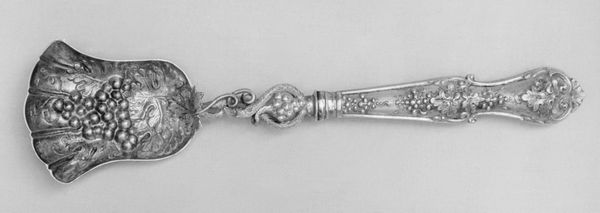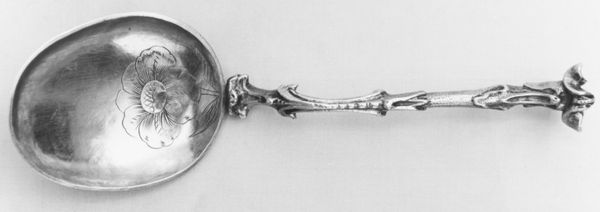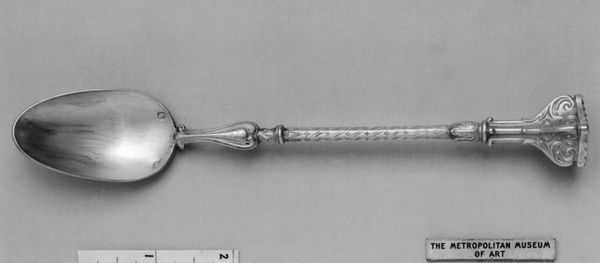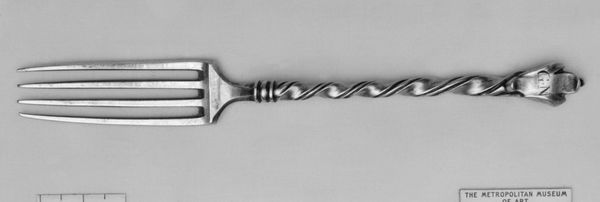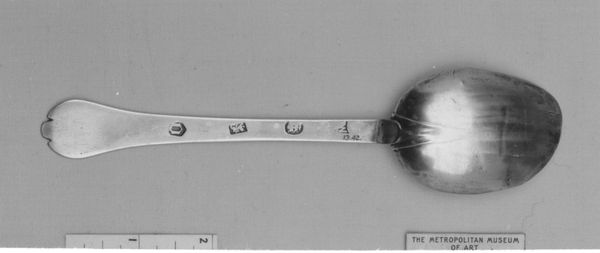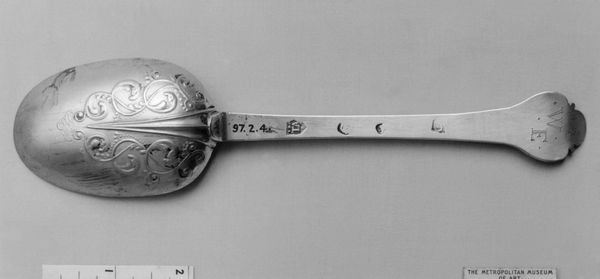
silver, metal, sculpture
#
silver
#
baroque
#
metal
#
sculpture
#
decorative-art
Dimensions: Length: 4 7/8 in. (12.4 cm)
Copyright: Public Domain
This silver spoon was crafted by Hans Reinhold Mühl sometime between 1654 and 1692. The material itself, silver, already speaks volumes, immediately conveying wealth and status. But consider the making process: the bowl of the spoon was likely raised and hammered to achieve its elegant curve, while the handle was cast, then chased and engraved with intricate details. Look closely, and you'll notice the handle is adorned with stylized motifs of flowers, leaves, and figures. These weren't just decorative flourishes; they were signifiers of the owner's refined taste and social standing. Silverware like this spoon wasn't just about eating; it was about conspicuous consumption, and projecting power. Objects like these were produced by highly skilled artisans working within a complex system of workshops and guilds. The labor involved was intensive, contributing to the spoon's value. It represents a fusion of artistry, craft, and social aspiration. Recognizing this helps us move beyond mere aesthetic appreciation, to a richer understanding of its cultural significance.
Comments
No comments
Be the first to comment and join the conversation on the ultimate creative platform.


